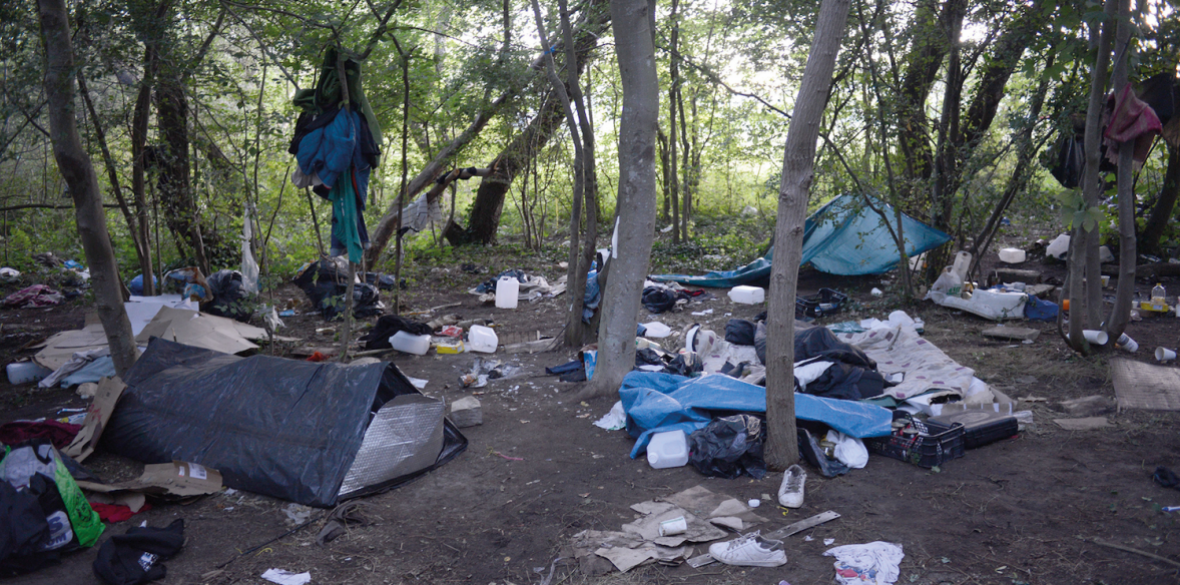This is the last article you can read this month
You can read more article this month
You can read more articles this month
Sorry your limit is up for this month
Reset on:
Please help support the Morning Star by subscribing here
NEARLY one in five asylum-seekers stranded in northern France are from Afghanistan, new research suggests, leading charities to accuse the Tories of failing Afghans one year on from the Taliban takeover.
A survey by refugee support charity Care4Calais reveals that 18 per cent of those living in squalid camps in Calais and Dunkirk are Afghan. They include several teenagers, the youngest of whom is 15.
This makes Afghans the second most numerous group among the refugees after Sudanese nationals, who make up 46 per cent of those stranded in northern France. Of the 49 Afghans surveyed, 87 per cent said they had family or friends in Britain whom they hoped to be reunited with.
The figures were collected by Care4Calais volunteers, who surveyed 270 asylum-seekers in the first week of August.
It comes amid growing anger at the government’s response to the plight of Afghan refugees in the 12 months since the Taliban takeover, with groups that saying that failures in the Tories’ resettlement schemes have forced Afghans to risk their lives to make their own way to Britain.
In stark contrast to Prime Minister Boris Johnson’s promise of a “warm welcome” for Afghans fleeing the Taliban, refugees from the country who cross the Channel in small boats from France face the prospect of deportation to Rwanda.
Care4Calais founder Clare Moseley said: “Our survey shows that a year on from the Taliban coming to power, this government is threatening fleeing Afghans with their Rwanda deportation policy.
“If Liz Truss and her leadership rival Rishi Sunak believe that Afghanistan is the ‘scene of the world’s largest humanitarian crisis,’ they would abandon the Rwanda policy.”
The charity wants to see Afghan asylum-seekers receive similar treatment to those from Ukraine, with visas for safe passage being issued.
Afghans made up the largest group of those attempting the crossing during the first three months of 2022 and refugees from the country have already been handed tickets to Rwanda.
Responding to the survey, Human Rights Watch accused the government of “failing to honour its promises” to the Afghan people one year on from the withdrawal of Western forces from Afghanistan.
“The lack of effective and adequate safe routes means that many Afghans, including those who are at risk of their lives because of the work they did for or with the UK in Afghanistan, are forced to flee via dangerous routes and are now at risk of being expelled to Rwanda,” said Human Rights Watch UK advocacy director Yasmine Ahmed.
“This is not how the UK government should treat those who were there for us at our time of need.”
Last week, Human Rights Watch and eight other human rights groups warned that thousands of Afghans who worked for the British remain stuck in Afghanistan.
In a parliamentary briefing, the groups criticised the two resettlement schemes opened by the British government, the Afghan relocations and assistance policy (Arap) and the Afghan citizens resettlement scheme (ACRS), as “unjustifiably restrictive.”
Echoing these concerns, Refugee Council head of advocacy Andy Hewett said: “The promised safe routes for those still in [the] country are too slow and restrictive, leaving Afghans who are in fear of their lives being forced to embark on perilous journeys. And now those who make it are cruelly threatened with removal to Rwanda.
“We need to see the government uphold their promises by immediately creating a safe route to ensure that family members who are in danger in Afghanistan are able to reunite and find safety with their loved ones here in the UK.”
The government has also been criticised over failing to move more than 10,000 Afghan refugees out of hotel accommodation.
Joint Council for the Welfare of Immigrants advocacy director Zehrah Hasan said: “This government’s behaviour towards Afghans is simply cruel and senseless.
“We know that more compassionate treatment of refugees is possible, as the Ukrainian resettlement schemes, while far from perfect, have rightly allowed tens of thousands of Ukrainian families to travel here safely.
“It’s time the UK government stopped treating some refugees as more deserving than others and started offering all refugees the safe routes, support and safety they need to thrive here, regardless of skin colour or religion.”

 Bethany Rielly
Bethany Rielly









